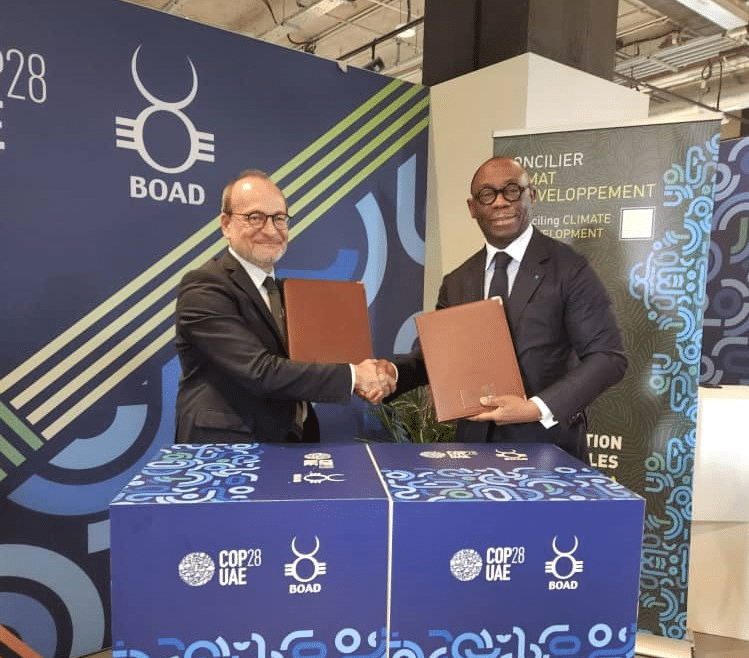Like most sub-regional, regional and international donors, the West African Development Bank (BOAD) has its pavilion at the Expo City in Dubai, where the 28th United Nations Conference of the Parties on Climate Change (COP28) has been taking place since 30 November 2023. It was from there that the financial institution launched its Climate Study Fund in the presence of several world leaders, including Senegal’s Ousmane Diagana, Vice-President of the World Bank.
The new mechanism is specifically dedicated to financing feasibility studies for projects linked to adaptation to climate change in the eight member countries of the West African Economic and Monetary Union (WAEMU). These countries include Benin, Burkina Faso, Mali, Niger, Senegal, Togo, Ivory Coast and Guinea-Bissau. They will benefit from the support of the Agence Française de Développement (AfDB), which will finance technical expertise, for example, to prepare future investment projects, mainly with a “climate co-benefit”.
“This fund (the amount of which is not yet known, editor’s note) is an important instrument that complements and strengthens the regional landscape of tools available to our Member States to support them in mobilising the necessary funding to match our ambitions for sustainable development”, explained Kako Nubukpo, the WAEMU Commissioner in charge of the Department of Agriculture, Water Resources and the Environment.
Read also-NAIROBI CLIMATE DECLARATION: united, Africa expects concrete action at COP28
The Climate Study Fund, piloted by Serges Ekué, President of the BOAD, joins other climate financing instruments put in place by the 60-year-old bank. This is the case of the Djoliba Strategic Plan, which provides for the mobilisation of CFAF 175 billion (more than €266 million) to finance development projects in the agriculture, energy, eco-construction, waste and electric mobility sectors.
Benoit-Ivan Wansi
